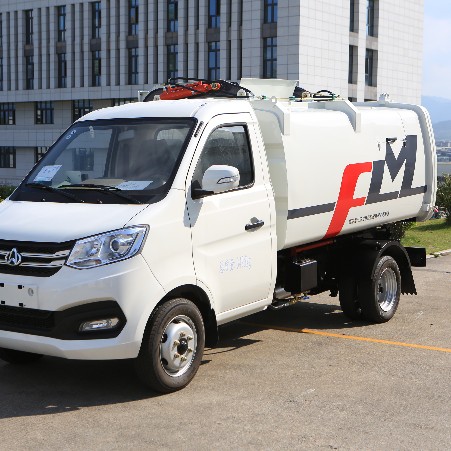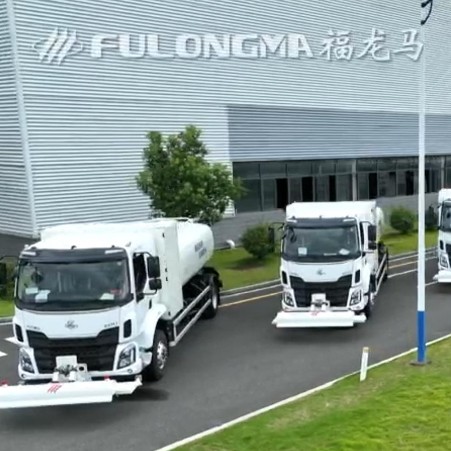In the world of heavy-duty hauling and waste management, two types of trucks reign supreme: the roll-off and the hook truck. They’re like the dynamic duo of the construction and waste management industries, swooping in to save the day when it comes to moving hefty loads of debris, waste, or construction materials. But what sets them apart? Let’s dive into the nitty-gritty details and uncover the nuances that make these trucks unique.
What is Roll-off Trucks
Roll-off trucks are heavy-duty vehicles designed to carry large, rectangular containers typically used for transporting construction debris, demolition waste, or other large materials. These trucks are equipped with a hydraulic system that allows the container to ‘roll off’ the back of the truck onto the ground, where it can be filled at the customer’s convenience.

What is Hook trucks
Hook trucks are known for their versatility and speed. They feature a hook-lift system that hooks onto containers and lifts them onto the truck. This system is particularly useful for spaces where a roll-off truck cannot easily maneuver.

Key Differences Between Roll-Off and Hook Trucks
The key differences between these two trucks lie in their design and functionality.
- Roll-off Trucks: These trucks rely on a separate container or bin that can be easily loaded and unloaded onto the truck bed using a hydraulic hoist system. They’re versatile and can accommodate a wide range of container sizes and types.
- Hook Trucks: In contrast, hook trucks feature an integrated hydraulic hook lift system that allows them to grab and lift containers directly onto the truck bed. They’re compact and maneuverable, making them ideal for tight spaces and urban environments.
Applications and Industries
While both types of trucks are used in waste management and construction, they each have their unique applications and advantages.
Roll-off trucks excel in situations where flexibility and versatility are paramount. Their detachable containers allow for easy swapping between different loads, making them ideal for handling diverse materials and accommodating changing job requirements. They’re commonly used in construction projects, demolition sites, and waste collection services where large volumes of debris need to be transported efficiently.
On the other hand, hook trucks shine in environments where space is limited or access is restricted. Their compact size and integrated lifting mechanism make them well-suited for urban areas or tight job sites where maneuverability is key. They’re often preferred for tasks like street cleaning, landscaping, and municipal waste collection, where precision and agility are essential.
Cost Considerations
When it comes to cost, roll-off trucks generally have a higher initial investment due to their size and capacity. However, they may be more cost-effective for large projects due to their volume efficiency. Hook trucks might have lower upfront costs and can be more economical for smaller or medium-sized projects.
Environmental Impact
Both types of trucks have adapted to become more environmentally friendly, with advancements in fuel efficiency and reduced emissions. The choice between a roll-off and hook truck can also influence the environmental impact of a project, depending on the frequency of trips and the distance covered.
In conclusion, while roll-off and hook trucks may seem similar at first glance, they each offer unique advantages and applications in waste management and construction industries. Roll-off trucks excel in versatility and flexibility, making them ideal for handling diverse materials and accommodating changing job requirements. Meanwhile, hook trucks shine in tight spaces and urban environments, where maneuverability and efficiency are paramount.
Ultimately, the choice between roll-off and hook trucks depends on the specific needs and challenges of the task at hand. Whether it’s hauling construction debris away from a job site or collecting trash in a bustling city center, these trucks are essential tools for keeping our communities clean, safe, and thriving.






